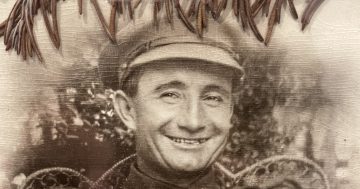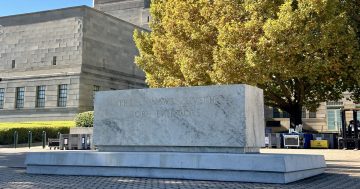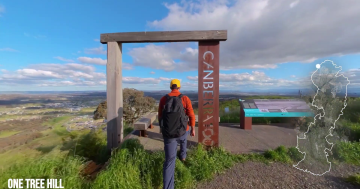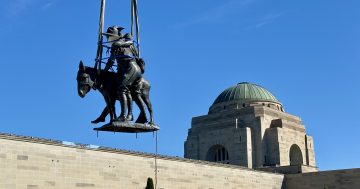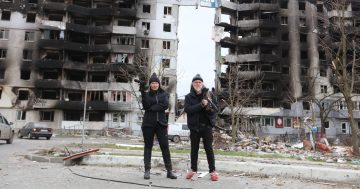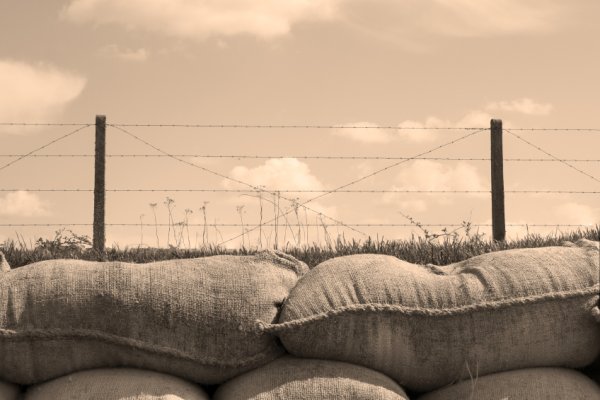
I was helping my father dig a post hole in the blazing Queensland sun. I had offered to hook the post hole digger up to the Ferguson tractor, but he never could see the sense of spending twenty minutes to do that for just one hole.
Except for the sound of shovel and crowbar cutting in to the clay it was pretty quiet until Dad suddenly turned angry – not unusual in itself – and said “You probably think it’s a great thing to kill a man. Well it’s not”.
Actually I’m pretty sure it wasn’t something I’d given any thought up to that point and if I was wondering anything at all it was why we’d been sweating in the sun for what seemed like at least an hour since lunchtime while the mechanical device which could have done the job for us in about five minutes was sitting in the shed unused.
But I was only eleven at the time.
Dad had issues all right. I don’t mean so much that he thought farm machinery was to be preserved rather than utilized.
That was just a quirk if anything. He was a Rat of Tobruk. He was at el Alamein. Tarakan was the one that made him really bitter.
I was proud of him for all the things he’d done in the war, but it sure cost him mentally and gradually made him hell on wheels to live with.
His own father’s name is up on the Menin Gate. He was killed in action at twenty eight.
My maternal grandfather saw action with the Light Horse and survived WWI.
But then for months after WWII he used to catch trains to walk through the carriages looking at the passengers on the very slight but not unheard of possibility that he might see his missing in action son. That’s what some people did in those days. There were stories of soldiers coming back not knowing who they were and being spotted by relatives.
It was worth a try until it was more or less established that he’d been killed in Borneo. He was twenty one.
These memories surfaced on Sunday night. I was appearing on Paul Murray Live on SKY TV. Paul wanted myself and fellow panelist Jason Morrison to comment on a piece from The Melbourne Age The art of war and the Anzac centenary: history, nationalism and propaganda.
Sonia Harford had written: “There is little doubt the military and political hierarchy recognize the power of culture in such an anniversary, from the design of war memorials to the pageantry of veterans’ marches and the ubiquitous blood-red poppy. The arts’ ability to make remote historical events vivid and poetic, and to provoke emotional responses from respect to horror, sympathy to nationalistic fervor, has long been exploited. Yet some influential cultural figures urge vigilance about the tone of centenary-themed events – many funded directly or indirectly by the public – serving contemporary political ends. ‘With the current government talking about Team Australia we should be aware of the ways political interests can be served by cultural events’, argues Julian Meyrick, an academic and theatre historian. ‘The Prime Minister might not think he has an agenda but in my view he definitely has one, an implied one if not a stated one. So these events may consciously or unconsciously feed into that and we need to be aware of it. The anniversary is an important marker of our political and military history, and the tremendous loss of Australian lives, but there is an inescapable political subtext too; of nationalism, of ties to Britain, of masculinist myths of sacrifice and heroism’. Should we, as Meyrick suggests, be aware of the potential of soft propaganda for a government that has recently committed Australian forces to a new war in the Middle East?”
Well, thanks for the warning Sonia and Julian. I’ll try to be on my guard. Although as someone who managed to survive Alan Seymour’s play The One Day of the Year and live long enough to see Anzac Day become the one, truly Australian day of commemoration as a result of growing grass roots support over the years I think I’ll probably come through relatively unscathed from whatever war related creations the arts community can throw at me in the next twelve months.
Certainly I don’t expect it to have the same impact on my life as my father’s deteriorating emotional state during my early adolescence.
The thrust of the article seems to be that this government, knowingly or unknowingly will use the centenary of Gallipoli to glorify war and as a result the arts community must be very careful not allow themselves to be exploited by spending their grants to this end.
I’ve told you a small portion of my own history to make the point I realize War and its aftermath may not be grand, but what is the alternative?
When push comes to shove do we send in platoons of Arts Professors and preening luvvies to dazzle the other side in to submission with intellect and flourish as their weapons? Or should we just pack up leave? Let those who threaten us have the real estate and everything we’ve done with it and just hope we can find some other people somewhere who are even bigger pushovers than we are and who will move aside for us? Just asking…












